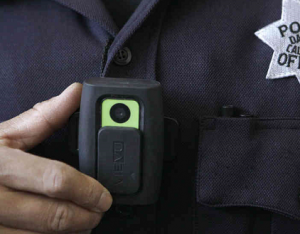In the aftermath of last summers police shooting in Ferguson, Mo., there has been an outcry from many demanding that police officers wear body cameras. While this is a double edged sword that can either protect you or damn you, it does bring to mind the similar “he said, she said” conflicts that occur in the repossession industry and begs to question why this has not been more heavily adopted and whether or not this could help stave off some of the many ludicrous nuisance lawsuits filed and unfortunately settled in courts as way of mitigating losses.
While many in the public are still up in arms over the use of LPR (License Plate Recognition) technology in the repossession industry, it would be somewhat hypocritical of them to make the allegation that body cameras would be a violation of their privacy, when they at the same time demand that law enforcement adorn them. While in some states there are laws regulating the filming or audio recording of individuals without their explicit consent, in this day age of smart phones and surveillance cameras everywhere, these laws seem somewhat antiquated and contradictory to the best interest of the public.
My motivation for this editorial came from a Wall Street Journal article published on January 5th by Christopher Mims titled “Body Cameras for All: One Way to Avert Lawsuits”. In this editorial he quotes the experiences of Chris Kneib of North West Repossession in Missoula, Montana, whose experiences I will quote for the purpose of illustrating the benefits of this practice.
“Mr. Kneib has been wearing a police-grade body camera made by Vievu for the past four years.
His job is simple: Locate a vehicle that a bank wants to repossess, and load it onto his truck, preferably at night, hopefully without ever waking the owner. Every step of this process is fraught with potential liability, however, and even physical danger.
Mr. Kneib can be sued for damaging a vehicle, causing others emotional distress or “breach of peace.” People also can file claims against him with the federal Consumer Financial Protection Bureau. People who are having their vehicles repossessed are often angry, and may resort to the courts or the CFPB when they feel they have been wronged.
People have brandished rifles at Mr. Kneib, screamed into his camera, which he turns on the moment he arrives on the scene, and sued him on several occasions. Yet Mr. Kneib says his insurer has never had to pay a claim against him, something he attributes in part to his body camera.
“People file complaints, and we have to be able to defend our actions,” says Mr. Kneib. “I don’t have to write anything down; I just send [law enforcement or the CFPB] a video. It saves me time and money because I have the documentation.”
While Mr. Knieb’s experiences may not be the same as everyone else, I am sure that the mere presence and knowledge by a borrower that they are being filmed, could reduce some of the rare but sometimes violent escapades of some borrowers. Unlike some schlocky Repo Reality show, these videos would more often than not be rather mundane as the users merely turn the cameras on as they commence with a repossession so as to spare both digital memory space as well as spare the viewer the monotony of hours of watching a Repo Man driving around, talking to himself and slurping on coffee.
This brings to question the positives of the reduction in lawsuit claim payouts from insurers, who may otherwise settle frivolous claims as a means to avoid larger lawsuits. Would a reduction in settled lawsuits bring about a reduction or possible freeze in agency insurance premiums? I doubt it personally, but it could pose an interesting argument if the arguing data became available.
We live in an era where technology has created an environment of constant supervision and monitoring. Much of this is for our own good and honestly, we have already become somewhat numb and indifferent to it. While body cameras may provide some legal protection, my only qualm is that of our ability to acquiesce one more piece of privacy, be it that of the Repo Man or the borrowers who may find themselves the subject of ridicule on a YouTube posting by some less than professional agents. Body cameras or not, that is already a reality.
At this point, video surveillance in the field is in its infancy and like most technology, it is pernicious and will likely find its way into the industry. I know what everyone is thinking already, “Oh great. One more piece of equipment and compliance to pay for.” I can definitely sympathize, but if there is one constant in the universe, that is change, and you can be sure of only that.
Kevin Armstrong
Editor











